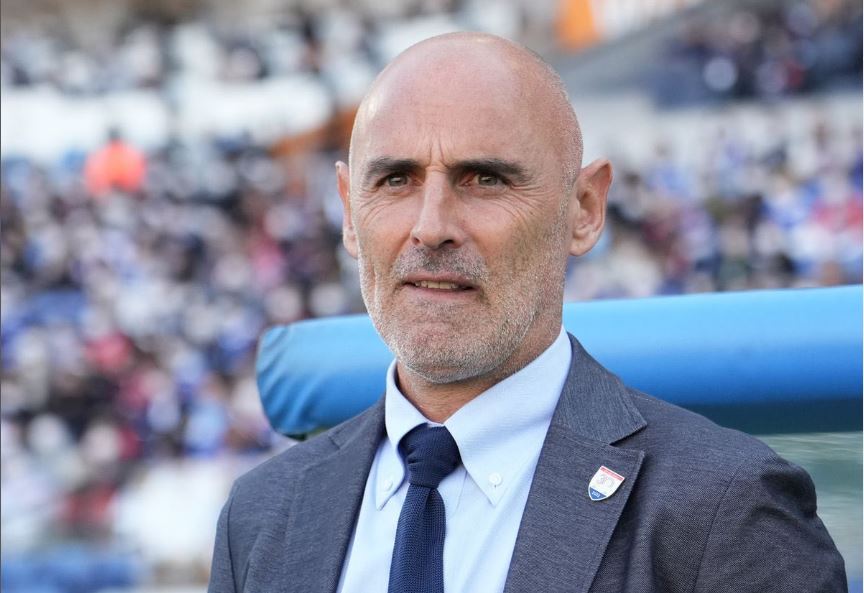Kevin Muscat is a name synonymous with aggression and intensity in football who has evolved from being one of the most controversial players to a well-respected manager. His journey from a fiery defender to an astute tactician has been fascinating, and his career trajectory has captured the attention of football enthusiasts worldwide.
Early Life and Career Beginnings
Kevin Muscat was born on August 7, 1973, in Crawley, England, but moved to Australia at a young age. He began his football career with the Sunshine George Cross club in Melbourne. His talent was evident from an early age, and by 1992, Muscat had secured a move to the National Soccer League (NSL) in Australia, where he played for the Melbourne Knights.
Muscat’s performances in the NSL attracted attention, and he moved to Europe in 1996 when he signed with English club Crystal Palace. He quickly made a name for himself as a no-nonsense defender, earning a reputation for tough, often aggressive play.
The Controversial Player
Muscat’s playing career is often defined by his uncompromising style on the pitch. Throughout his time as a player, he garnered a notorious reputation for hard tackles, some of which were deemed dangerous by fans and pundits alike. His physical style often resulted in confrontations and several red cards over his career.
One of the most infamous incidents in Muscat’s playing career came in 2001 when he was playing for Wolverhampton Wanderers. During a game against Charlton Athletic, he delivered a brutal tackle on Matty Holmes, leaving Holmes with a career-threatening injury. This challenge became a defining moment of Muscat’s career, and he was often labelled as one of the “dirtiest” players in football, a tag he struggled to shake.
Despite his aggressive playing style, Muscat was a skilled and reliable defender, captaining both his club and the Australian national team during his career. He had stints at clubs like Rangers, Millwall, and Melbourne Victory, where his leadership qualities came to the forefront. He led Melbourne Victory to their first-ever A-League championship in 2007.
Transition into Management
After hanging up his boots in 2011, Muscat didn’t stray far from the game. He quickly transitioned into coaching and management, becoming an assistant coach at Melbourne Victory, the club where he had achieved significant success as a player.
By 2013, Muscat was appointed the head coach of Melbourne Victory after the departure of Ange Postecoglou to manage the Australian national team. His appointment raised eyebrows, as many questioned whether Muscat’s temperament as a player would translate well into management. However, Muscat proved his doubters wrong.
Under his guidance, Melbourne Victory became one of the dominant forces in the A-League. Muscat led the team to two A-League Championships, in 2015 and 2018, and one FFA Cup victory in 2015. His tactical acumen, combined with his ability to motivate players, showed that he had evolved from the “hard man” image that had defined his playing career.
Muscat’s success as a manager in Australia cemented his reputation as one of the most promising coaches to emerge from the country. His managerial style was more controlled than his playing days, with a focus on discipline and structured team play.
The Move to Japan: Success with Yokohama F. Marinos
Muscat’s biggest challenge and perhaps his most significant success—came when he took the reins at Yokohama F. Marinos in the Japanese J1 League in 2021. Replacing his mentor Ange Postecoglou, who had moved to manage Celtic in Scotland, Muscat had big shoes to fill. Postecoglou had led Marinos to the league title in 2019, and expectations were high for Muscat to continue that success.
At Yokohama, Muscat’s philosophy of aggressive, high-tempo football found fertile ground. He implemented an attacking style that resonated with the players and the club’s tradition of playing exciting, possession-based football. Despite initial skepticism about whether Muscat could replicate Postecoglou’s achievements, he quickly proved himself as a top-level manager.
In 2022, Muscat led Yokohama F. Marinos to the J1 League title, reinforcing his credentials as a top-tier coach. The victory was a significant achievement in his managerial career, as winning a major title in a foreign league showcased his adaptability and tactical intelligence. Muscat’s success in Japan marked him as one of the few Australian managers to achieve international recognition, elevating his profile far beyond the A-League.
Muscat’s Managerial Style and Philosophy
Kevin Muscat’s managerial approach blends elements of the tactical discipline he developed during his playing days with a more refined, modern style of football. His teams typically play an aggressive, pressing game, where they aim to dominate possession and attack at pace.
One of Muscat’s defining traits as a manager is his ability to inspire his players. His leadership qualities, honed over years as a captain on the field, translate well into management. Muscat demands a high level of commitment and discipline from his squads, but he also fosters a sense of unity and teamwork that helps his teams thrive.
His adaptability has also been a key factor in his success. Managing the Japanese J1 League, with its distinct style of play and cultural differences, could have been a daunting task for Muscat. However, he embraced the challenge, learning the intricacies of the league and building strong relationships with his players and staff.
Legacy and Future Prospects
Kevin Muscat’s career, both as a player and a manager, is a testament to his resilience and determination. While his playing days may have been marked by controversy, Muscat has reinvented himself as a manager capable of leading teams to success at the highest level.
His achievements in Australia and Japan have positioned him as a manager to watch on the global stage. With his success at Yokohama F. Marinos, Muscat could be in line for even bigger opportunities in European football, where his tactical approach and leadership abilities could shine.
